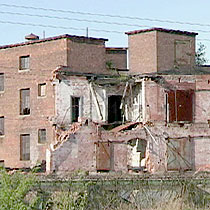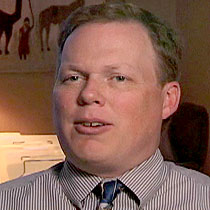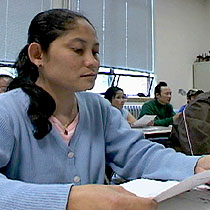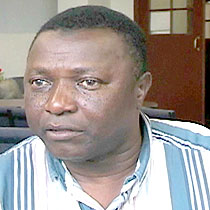2007年VOA标准英语-Utica, New York Home to Growing Refugee Populat
搜索关注在线英语听力室公众号:tingroom,领取免费英语资料大礼包。
(单词翻译)
By Kane FarabaughUtica, New York
27 August 2007
The loss of manufacturing jobs in the northeastern U.S. state of New York led to an economic decline in the 1970s. But war in Vietnam, and two decades later in the Balkans, as well as continued strife1 in Burma and Africa have helped change the face of one central New York community. VOA's Kane Farabaugh visited the town of Utica, which has welcomed an influx2 of refugees from around the world.
 |
| Utica's prosperity disappeared two to three decades ago |
The hum of industry and people reached its peak in 1960, when the population grew to more than 100,000 people.
Peter Vogelaar from the Mowhawk Valley Refugee Resource Center did not live here then. He arrived more than three decades later, when the population stood at little more than 60,000. "It's the rust4 belt. You know, a lot of light manufacturing. There was a closing of a military base just north of Utica and Rome, that lost around 30,000 jobs. A lot of the jobs were either moving south or overseas."
 |
| Peter Vogelaar |
"There was a realization5 that, 'Hey, this is actually a good thing for us,' as a community," Vogelaar said.
Utica is now home to roughly 5,000 refugees who fled the conflict in the Balkans in the mid-1990s. They make up almost 10 percent of Utica's current population, and have transformed derelict neighborhoods into thriving communities.
When the Balkan conflict ended in the late 1990s, the number of new Bosnians arriving in Utica dwindled6.
But that did not stop the flow of other refugees.
 |
| Mohawk Valley Refugee Resource Center is the main organization helping7 refugees resettle in Utica |
English lessons at the Refugee Resource Center are as important, and as busy, as ever.
Most of the classes are now made up of African and Burmese students looking to gain the language skills necessary to land a good job.
Mohamud Hussein Mohammed is one such student. He fled famine and fighting in Somalia in 1993, and resettled in the southern state of Texas before moving to Utica last year. He has a family of six, and prefers living in Utica because it is closer to his extended family, and closer to living the American dream.
 |
| Mohamud Hussein Mohammed |
Home ownership in Utica is within reach for many refugees. The City of Utica and other landowners are happy to sell abandoned and derelict homes that can be put back on the tax rolls.
Much of the remodeling and home construction in the area can be attributed to the refugee population.
Vogelaar often hears from people his agency has helped through the years. Many are now employed, and have a new a sense of self-pride reflected in the improvements not just to the homes of the area, but the community. "The resilience of the human spirit is amazing, and is demonstrated every single day among the refugees."
For the most part, it has been a happy marriage between Utica and its refugee population. People who suffered through hardship and bloodshed have given new life to a city that suffered cultural and economic decline.
 收听单词发音
收听单词发音 




